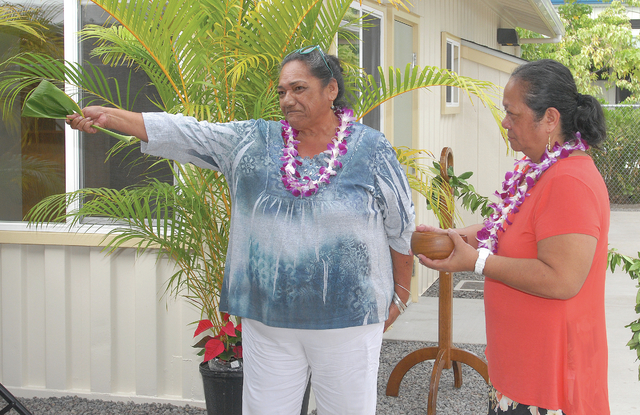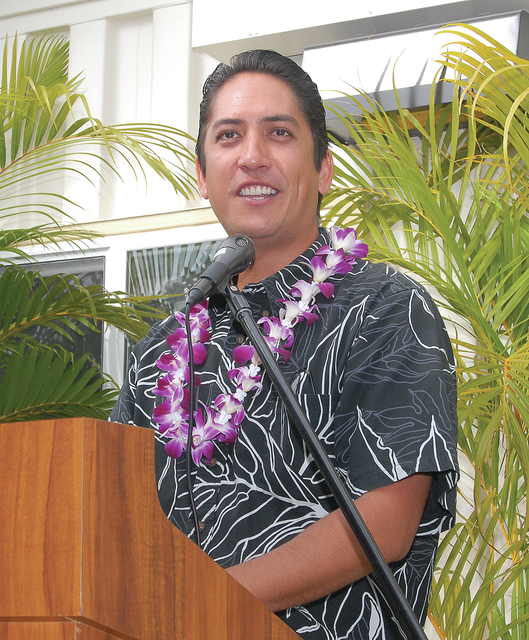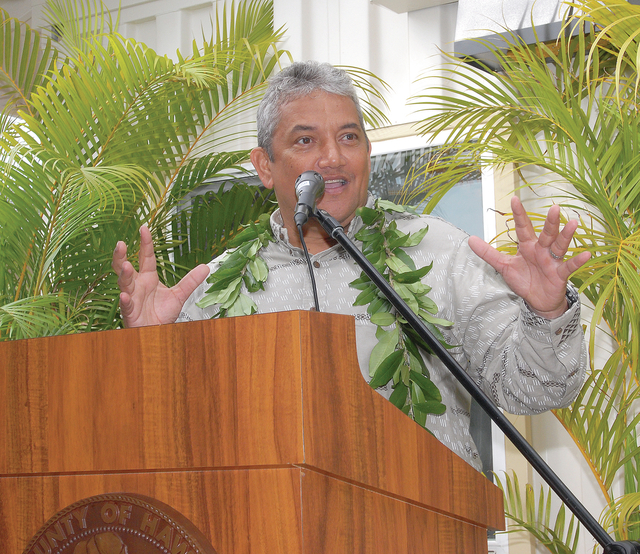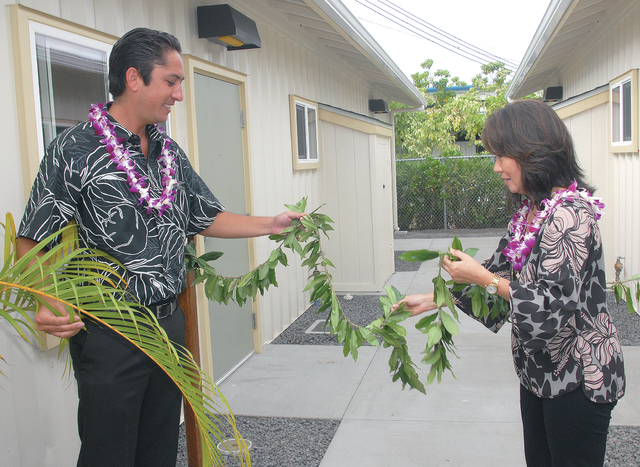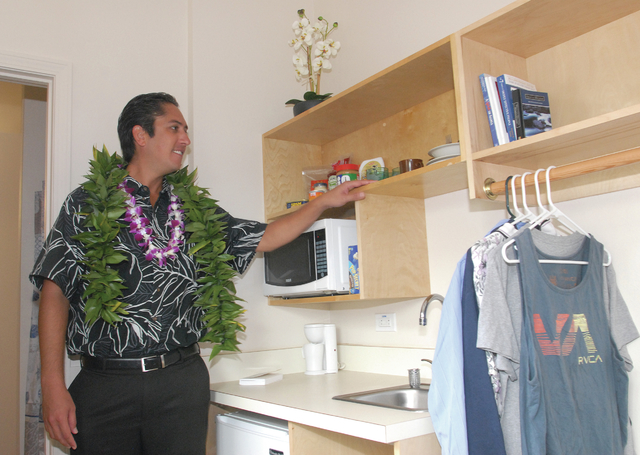Home for the holidays: Micro housing aimed at addressing homelessness opens
KAILUA-KONA — More than two dozen Big Islanders will have a home for the holidays.
On Tuesday, the County of Hawaii marked another step in its efforts to reduce homelessness on the Big Island with the blessing and grand opening of Hale Kikaha, a micro housing project in the Old Kona Industrial Area. The event was attended by several dozen dignitaries, representatives of social service agencies and nonprofits, and others.
“When you’re down on your luck, it is comforting to know that there are people that care, and it is such a good feeling to know that we have this facility that will provide a clean and safe environment for some of our most vulnerable brothers and sisters,” said Kona Councilman Dru Kanuha. “To the new residents of Hale Kikaha, my congratulations to all of you. It’s a great thing to be given a second chance in life and an opportunity to become productive and contributing members of society again. I encourage you to make the most of it.”
Comprising 23 ADA compliant units — three of which are designated for couples and four that are handicap accessible — the first tenants of the permanent support housing are expected to move in the first week of December, said Sharon Hirota, Existing Housing Division manager with the county Office of Housing and Development. The tenants, 99 percent of whom hail from West Hawaii, were identified earlier this fall through various social service agencies and also had to complete an application and be interviewed to be selected. More than 100 people applied.
Though considered permanent support housing, the goal is to have tenants there on a 12-month lease and at that point assess if they are able to move to the next level, such as an apartment or Na Kahua Hale O Ulu Wini or Kamakana Villages, which is expected to be complete next November.
“That’s the unique thing about this project that each of the units have a project-based voucher attached,” said Hirota. “So, after 12-months lease, if they are in the position to move, they will still be able to get that voucher (for their next residence).”
The project was the county’s response to Gov. David Ige’s call for more to be done across the islands, particularly to create permanent housing solutions, which the state prioritized over emergency shelters due in part to a shift in federal funding favoring the Housing First model. Housing First is a homeless assistance approach that prioritizes providing permanent housing to people experiencing homelessness, thus ending their homelessness and serving as a platform from which they can pursue personal goals.
Addressing homelessness has been a priority for Mayor Billy Kenoi, who created a task force around four years ago to address the issue, especially in West Hawaii where housing costs more than other areas of the island, said Susan Akiyama, who heads the county Office of Housing and Development. The project was even listed as part of Ige’s original proclamation declaring homelessness an emergency back in October 2015. Construction on Hale Kakihi, which means to soar, began earlier this year.
The 23 units are housed in re-purposed shipping containers and feature a kitchenette with a sink, a microwave, a refrigerator and room for a bed. A second area houses the bathroom, which includes a stand-up shower, toilet and fixtures. In addition to the units, there is a laundry facility, office space for management, a storage area and a resource office that will connect people with mental and medical services. All told, the project cost about $2.4 million.
“All the kids and families who homeless, you know what they need guys? Simple. All they need is one sense they get chance,” said Kenoi, who like others thanked the county and community efforts to bring the facility to reality. “If our kids believe they get chance and how they believe that is because they can sleep in one clean, safe place, they’re not stuck in a car or down on the beach and hide in shame and get teased by their friends, there’s a place of dignity of hope.”
But more is still needed, said Mattson Davis, former CEO of Kona Brewing Co., president of Ulu Development and managing partner Manini Holdings, LLC, which manages the 6-acre area next to the new micro housing units. He said he’s pleased to see a start to addressing the issue of homelessness, particularly in the downtown area.
“It’s fantastic to see the county taking direction for this style of housing, this concept of housing, and I look forward to their plans on how to meet the transients’ needs for shelter. We still need a shelter where people can come sleep overnight,” said Davis. “As a new neighbor, we hope to work with these tenants and the Friendly Place.
“Maybe we could be a little work force,” he added. “Maybe some of the people who use this neighborhood could help maintain it.”


